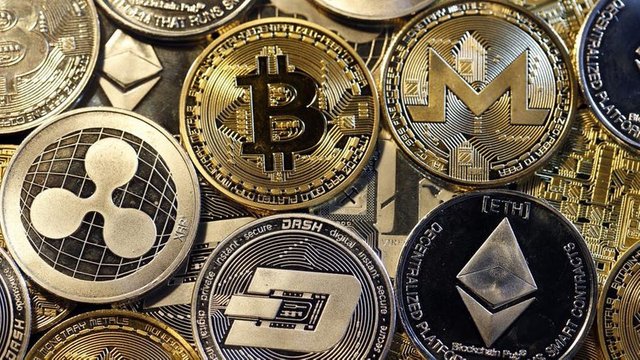
All of us listen so much about the cryptocurrency and its usage being done for the various transactions but we still don’t know the basics of this currency and how it is transacted and under which regulatory board or Exchange their indices are maintained. I thought let us discuss the simple basics of the same and try to understand what exactly it is and how it impacts the transactional market internationally. I shall be taking it up in two parts. In today’s part, we shall try to understand the basics and its functioning whereas in part two we shall be discussing the various cryptocurrencies being transacted internationally as per their cumulative market capital captured.
What is a cryptocurrency: -
A cryptocurrency is a form of payment that can be exchanged online for goods and services. Many companies have issued their currencies, often called tokens, and these can be traded specifically for the good or service that the company provides. Cryptocurrencies work using a technology called the blockchain.
Cryptocurrency is a type of currency that's digital and decentralized. Cryptocurrencies can be used to buy and sell things, and their potential to store and grow value has also caught the eye of many investors. Instead, owners hold cryptocurrency in a digital wallet and buy or sell through an online exchange.
Is this digital money the real one?
A cryptocurrency is real money that can be used for payments. Cryptocurrencies such as bitcoin and Ethereum were designed as a way to make payments without relying on traditional modes such as currency notes, debit cards, credit cards, or checks.
With this currency the power lies with the currency holder: -
The main point of cryptocurrency is to fix the problems of traditional currencies by putting the power and responsibility in the currency holders' hands. They each also attempt to solve one or more real-world problems.
Probably the biggest concerns with cryptocurrencies are the problems with scaling that are posed. While the number of digital coins and adoption is increasing rapidly, it is still dwarfed by the number of transactions that payment giant, VISA, processes each day.
Paypal also has entered into cryptocurrency: -
PayPal launched its cryptocurrency service in the US, in October, hoping to make them more accessible to a wider audience. "The tokens and coins have been around for a while but you had to be a relatively sophisticated user to be able to access that," a PayPal spokesman told CNBC.
What is Blockchain System: -
Let us try to understand in simpler terms how the Block system works in cryptocurrency transactions:-
• Using the example of the Bitcoin system, the blockchain, also known as distributed ledger technology, works:
• The purchase and sale of Bitcoin are recorded and transmitted to a network of powerful computers, the so-called nodes.
• This network of thousands of nodes around the world competes to confirm the transaction using computer algorithms.
• This is known as bitcoin mining. The miner who first completes a new block is rewarded for their work with Bitcoin.
• These rewards are paid through a combination of reinvented bitcoins and network fees that are passed on to buyers and sellers.
• Fees may increase or decrease depending on the volume of transactions.
• After the purchase is cryptographically confirmed, the sale is added to a lock on the distributed ledger.
• Most of the network has to confirm the sale.
• The block is permanently chained with all previous Bitcoin transaction blocks using a cryptographic fingerprint known as a hash, and the sale is processed.
• The concept of blockchain technology first appeared in academic papers from 1982 in a dissertation dealing with the design of a distributed computing system that can be configured, maintained, and trusted by mutually suspicious groups. But it was an article by the pseudonym Satoshi Nakamoto from 2008 titled "Bitcoin: A Peer-to-Peer Electronic Cash System" that put an academic theory into practice.
Blockchain Analysis Software – Chainalysis:-
Founded by Michael Gronager, Jonathan Levin, and Jan Moller in 2014, Chainalysis provides cryptocurrency exchanges, international law enforcement agencies, and other clients with blockchain transaction analysis software to help them comply with regulations, assess risk, and identify illicit activity. In the activity in Bitcoin, Ethereum & Other Markets. The risk is assumed to be reduced by the appointment of ‘Crypto Forensics’, ‘Crypto Investigation’ & ‘Crypto Compliance’.
According to recent findings from Chainalysis, Vietnam, India, and Pakistan dominate the Global Crypto Adoption Index for the second year in a row. Rather than gross transaction volume, the index rates 154 nations based on peer-to-peer exchange trading activity.
Still uniform international laws needed to be strengthened: -
Despite its use for buying goods and services, there are still no uniform international laws that regulate bitcoin. Many major and developed countries allow the use of bitcoin, such as the U.S., Canada, and the U.K. Other countries, however, are opposed to any use of bitcoin, including China and Russia.
Investments are always risky, but some experts say cryptocurrency is one of the riskier investment choices out there, according to Consumer Reports. However, digital currencies are also some of the hottest commodities.
Hot in transaction-different Cryptocurrencies: -
From Bitcoin and Ethereum to Dogecoin and Tether, there are thousands of different cryptocurrencies, which can make it overwhelming when you’re first getting started in the world of crypto. To help you get your bearings, these are the top 10 cryptocurrencies based on their market capitalization or the total value of all of the coins currently in circulation.
• Bitcoin (BTC) Market cap: Over $821 billion. ...
• Ethereum (ETH) Market cap: Over $353 billion. ...
• Tether (USDT) Market cap: Over $68 billion. ...
• Cardano (ADA) Market cap: Over $67 billion. ...
• Binance Coin (BNB) Market cap: Over $64 billion. ...
• XRP (XRP) Market cap: Over $44 billion. ...
• Solana (SOL) ...
• USD Coin (USDC)